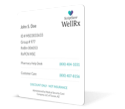What is Open-Angle Glaucoma?
Ghufran Alghafli, PharmD Candidate Class of 2021
The University of Kansas School of Pharmacy
April 6, 2021

Glaucoma is a group of eye diseases characterized by higher than normal intraocular pressure (IOP). This disease damages your eye's optic nerve which is usually caused by fluid build-up in the eye. This extra fluid increases the pressure in the eye, damaging the optic nerve. This increased pressure causes a gradual loss of sight which is one of the first symptoms patients will have. There are two types of glaucoma: Open-angle and closed-angle. The most common type of glaucoma is open-angle glaucoma.
Risk Factors for Open-Angle Glaucoma
There are multiple risk factors for developing open-angle glaucoma. The incidence of open-angle glaucoma increases with age as does the rate of blindness also increases with age. Race is also a risk factor. Glaucoma occurs more often in African Americans. The prevalence of open-angle glaucoma is three times higher in blacks compared with whites. Family history is also tied to increased risk of open-angle glaucoma. Other risk factors include diabetes, hypertension, and elevated intraocular pressure.
How Can You Manage Open-Angle Glaucoma?
The treatment goal for glaucoma is to either stop making so much fluid to decrease build-up and IOP or to increase the rate that the fluid is flowing outside the eye. Both have the same goal, which is to reduce IOP. Some medications work on mechanism one, such as topical beta-blockers. Other medications, like topical prostaglandins, work on mechanism two. These pathways will reduce the IOP which can prevent further deterioration of vision from disease progression. The normal IOP range is 10-21 mmHg.
There are multiple medication classes used to treat open-angle glaucoma. The two most common classes used are topical prostaglandins and beta-blockers. The preferred initial treatment for open-angle glaucoma is topical prostaglandins, such as latanoprost. Common side effects of using these treatments are darkening of the eye, skin, and eyelashes, and thick eyelashes. They are effective in lowering IOP and are usually dosed once daily.
This medication class allows the fluid to leave the eye which is effective in lowering IOP. Topical beta-blockers, such as timolol and betaxolol, are another class of medication that can be used in patients who cannot tolerate topical prostaglandins. Common side effects of using these treatments are dizziness, lightheaded, lower heart rate, and nausea. This class decreases production which is effective in lowering IOP. If patients cannot tolerate these medications there are other options such as alpha agonist, carbonic anhydrase inhibitors, rho kinase inhibitors, and combination medications.
When to Visit a Doctor for Open-Angle Glaucoma?
If you or someone you know suffer from eye pain or your eyesight is failing, talk to your doctor or visit an eye specialist. Don't skip your annual eye doctor visit, as this is very important for your health.
References:
“Ocular Hypertension: Causes, Symptoms, Tests, and Treatment.” WebMD, WebMD, 21 July 2020, www.webmd.com/eye-health/occular-hypertension#1
“Glaucoma Medications and Their Side Effects.” Glaucoma Research Foundation, www.glaucoma.org/gleams/glaucoma-medications-and-their-side-effects.php
Boyd, Kierstan. “What Is Glaucoma?” American Academy of Ophthalmology, 14 Dec. 2020, www.aao.org/eye-health/diseases/what-is-glaucoma.
“Open Angle Glaucoma”. UptoDate.com. Accessed via University of Iowa Library on January 26, 2021. https://www.uptodate.com/contents/open-angle-glaucoma-epidemiology-clinical-presentation-and-diagnosis
Recommended Articles









